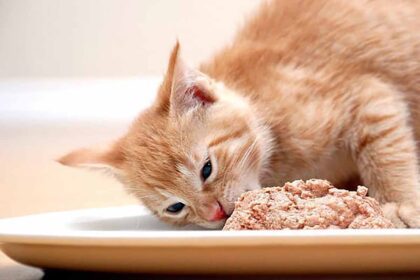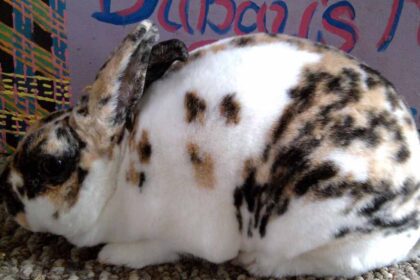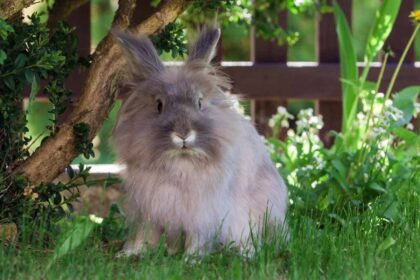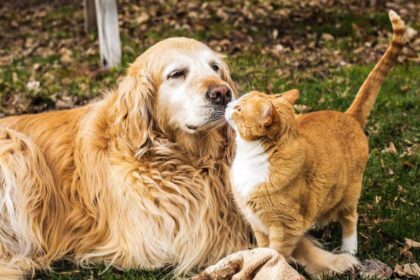Our fluffy friends rabbits, may love to hop and zoom around, but their little bodies are delicate, especially when it comes to breathing. Unlike us or dogs who can pant after a run, fast breathing in a rabbit is a cause for concern. Their lungs are small and work extra hard to keep them going. This means even minor problems can quickly turn into serious trouble breathing.
That’s why it’s important for rabbit owners to be familiar with the signs of respiratory distress, like rapid breathing, so they can take action. Understanding why your rabbit is breathing fast isn’t just about a title, it’s about recognizing a symptom that could help your bunny get the vet care they need and get back to feeling happy and healthy.
Normal Rabbit Breathing
Ever wondered how fast your rabbit should normally be breathing? Unlike us humans or even dogs, rabbits have a much faster respiratory rate. In general, a healthy rabbit will take 30-60 breaths per minute. This might seem like a lot, but their small lungs and super-charged metabolisms mean they need to work harder to take in enough oxygen.
However, it’s important to remember that why your rabbit is breathing fast isn’t always a cause for alarm. Just like us, rabbits can breathe a little faster sometimes. For example, after a fun playtime session where they’ve been hopping and binkying around, they might need to take a few extra breaths to catch their breath. This is totally normal and will slow down once they relax. Similarly, on hot summer days, rabbits might breathe faster to help cool themselves down.
The key is to be aware of these temporary changes and be able to tell the difference between normal, healthy breathing and signs of something more serious. If your rabbit’s breathing seems much faster than usual, even when they’re calm and cool, or if they’re showing other signs of discomfort, it’s best to err on the side of caution and consult your veterinarian.
Causes for Rabbits Fast Breathing
Infections
- Bacterial Infections (Pasteurella, Bordetella): These tiny bacteria can invade your rabbit’s lungs, causing inflammation and making it difficult for them to take in oxygen. This struggle leads to fast, shallow breaths as your rabbit tries to compensate for the lack of oxygen.
- Myxomatosis: This serious and highly contagious viral disease attacks a rabbit’s entire respiratory system, including the lungs. The damaged respiratory system struggles to function properly, leading to rapid, labored breathing as the rabbit fights for air.
- Rabbit Haemorrhagic Disease Virus (RHDV): Another highly contagious viral disease, RHDV also affects the respiratory system. Similar to Myxomatosis, it causes rapid breathing due to difficulty getting enough oxygen.
Environmental Irritants
Sometimes, the answer to why your rabbit is breathing fast can be found right in their environment. Here are some things in the air that can irritate your rabbit’s sensitive respiratory system:
- Dusty Bedding: While some types of bedding are safe for rabbits, wood shavings and straw can create a lot of dust. This dust can irritate your rabbit’s lungs, making it hard to breathe and leading to rapid, shallow breaths.
- Chemical Fumes: Strong cleaning products, air fresheners, and even paint fumes can be harmful to your rabbit’s lungs. Inhaling these chemicals can cause inflammation and irritation, making breathing difficult and causing fast, labored breaths.
- Smoke: Secondhand smoke from cigarettes, cigars, or even fireplaces is very dangerous for rabbits. Just like us, inhaling smoke can damage their lungs and make it hard to breathe, resulting in rapid breathing.
Respiratory Problems
While infections are a common culprit, rapid breathing in rabbits can also be caused by other problems affecting their respiratory system.
Here are some possibilities:
- Pneumonia: This is an infection deep within the lungs that fills the air sacs with fluid. This fluid makes it very difficult for rabbits to take in enough oxygen, leading to shallow, rapid breaths as they struggle to breathe.
- Heart Disease: A weakened heart can struggle to pump blood effectively throughout the body, including the lungs. This lack of proper blood flow can lead to fluid buildup in the lungs, making breathing difficult and causing rapid, labored breaths.
- Foreign Object Inhalation: If your rabbit accidentally inhales a small object like a piece of hay or bedding, it can irritate or even block their airway. This blockage makes breathing difficult and forces them to take fast, shallow breaths in an attempt to get enough oxygen.
- Allergies: Just like us, rabbits can suffer from allergies to things like dust, pollen, or mold. These allergies can irritate the airways and lungs, making breathing difficult and leading to rapid breaths and wheezing.
Signs of Respiratory Distress (Beyond Fast Breathing)
While rapid breathing is a key indicator of trouble, it’s not the only sign to watch for. Here are some other things to look out for that might signal your rabbit is struggling to breathe:
✦ Nostril Flaring: Healthy rabbits breathe through their noses, and their nostrils should appear relaxed. If your rabbit’s nostrils are widened or flaring with each breath, it’s a sign they’re working extra hard to take in oxygen.
✦ Wheezing or Coughing Sounds: Just like humans, rabbits can wheeze or cough if their airways are irritated or blocked. These sounds are a clear sign that something is making it difficult for your rabbit to breathe.
✦ Lethargy and Loss of Appetite: If your rabbit seems unusually sluggish, isn’t interested in playing, or isn’t eating much, it could be a sign they’re not feeling well. These symptoms, along with fast breathing, can indicate respiratory distress.
✦ Blue-tinged Tongue or Lips: A healthy rabbit’s tongue and lips should be pink. If their tongue or lips appear blueish or purple, it’s a serious sign that your rabbit isn’t getting enough oxygen and needs immediate veterinary attention.
✦ Discharge from the Nose or Eyes: A small amount of clear discharge is normal. However, thick, cloudy discharge from the nose or eyes, especially if accompanied by other symptoms, can indicate an infection or other respiratory problem.
What Should You do if Your Rabbit Breathes Fast?
If you discover your rabbit breathing fast, stay calm but act quickly. Rapid breathing is a significant sign that something is wrong with your rabbit’s respiratory system, and they need immediate veterinary attention. Each moment is important when it comes to their well-being.
Call your vet immediately and describe the situation. Describe the fast breathing in detail, including how long it’s been happening and how rapid the breaths are. Mention any other concerning symptoms you’ve noticed, like lethargy, loss of appetite, or unusual sounds like wheezing or coughing.
Also, be prepared to share your rabbit’s medical history, including any recent illnesses or medications. This information will help your vet make a quick and accurate diagnosis.
While you wait for your appointment, focus on keeping your rabbit calm and comfortable. Stress can worsen their breathing difficulties. Handle them gently and avoid picking them up unless absolutely necessary.
Prepare a well-ventilated carrier for transport. Line the bottom with a soft towel or familiar bedding to provide some comfort. Do not cover the carrier as this can restrict airflow further.
Keep in mind early intervention is critical to a successful recovery. By recognizing the signs of fast breathing and seeking prompt veterinary care, you can help your rabbit get the treatment they need to breathe easy and hop happily again
Treatment Options for Rabbit Respiratory Issues
The answer to why your rabbit is breathing fast will ultimately determine the best course of treatment. Your veterinarian will perform a thorough examination and may run tests like X-rays or bloodwork to diagnose the underlying cause.
Once the culprit is identified, treatment can begin. For infections like Pasteurella or Bordetella, antibiotics will be prescribed to fight the bacteria and clear the infection. If allergies are suspected, your vet might recommend medications like antihistamines to reduce inflammation and ease breathing difficulties.
In severe cases where your rabbit is struggling to breathe on their own, oxygen therapy may be necessary to provide them with the extra oxygen they need to recover. The specific treatment plan will depend on the severity of your rabbit’s condition and the underlying cause.
However, regardless of the specific medications or therapies used, early diagnosis and veterinary intervention are key to a successful recovery. So, if you notice your rabbit breathing fast, don’t wait – seek professional help right away to ensure your furry friend gets back to breathing easy and feeling their best.
Preventing Respiratory Problems in Rabbits
- Clean and dust-free environment: Maintain a clean and dust-free environment for your rabbit. Dusty bedding (like wood shavings) and hay can irritate their lungs. Opt for dust-controlled bedding and regularly clean their cage to minimize dust particles in the air.
- Provide good ventilation: Ensure your rabbit’s hutch or room has good ventilation. Stagnant air can trap dust and irritants, making it harder for them to breathe. Avoid placing their cage near drafts, but provide fresh air circulation.
- Avoid the Nasty Chemicals: Strong cleaning products, air fresheners, and even cigarette smoke can irritate your rabbit’s respiratory system. Avoid using harsh chemicals around your rabbit and create a smoke-free environment for their health.
- Healthy Diet and Hydration: A balanced diet rich in fresh hay and access to clean water is crucial for your rabbit’s overall health, including their respiratory system. Hay helps with proper digestion and gut health, which can indirectly impact their breathing. Fresh water keeps them hydrated and prevents mucus buildup in the lungs.
- Regular Checkups: Schedule regular checkups with your veterinarian, even if your rabbit seems healthy. These checkups allow your vet to monitor your rabbit’s breathing and overall health, and detect any potential problems early on before they become serious.
By following these preventive measures, you can help create a healthy environment for your rabbit and minimize the risk of respiratory problems. Remember, a little prevention can go a long way in keeping your furry friend breathing easy and hopping happy for years to come.
How to Make Your Pet Journey More Easier with PetsCityHub
PetsCityHub.com is like a magical place full of everything you need to know about pets! It’s there for people who love animals, whether you’ve had a pet for a long time or you’re getting one for the first time. This awesome website gives you helpful advice, sweet stories, and lots of useful stuff to help you take care of your furry friend.
They’ve got tips on how to train your pet and even reviews on pet products. PetsCityHub.com cares about making pets and their owners happy. It’s like a guide to help you have the best time with your pet.













